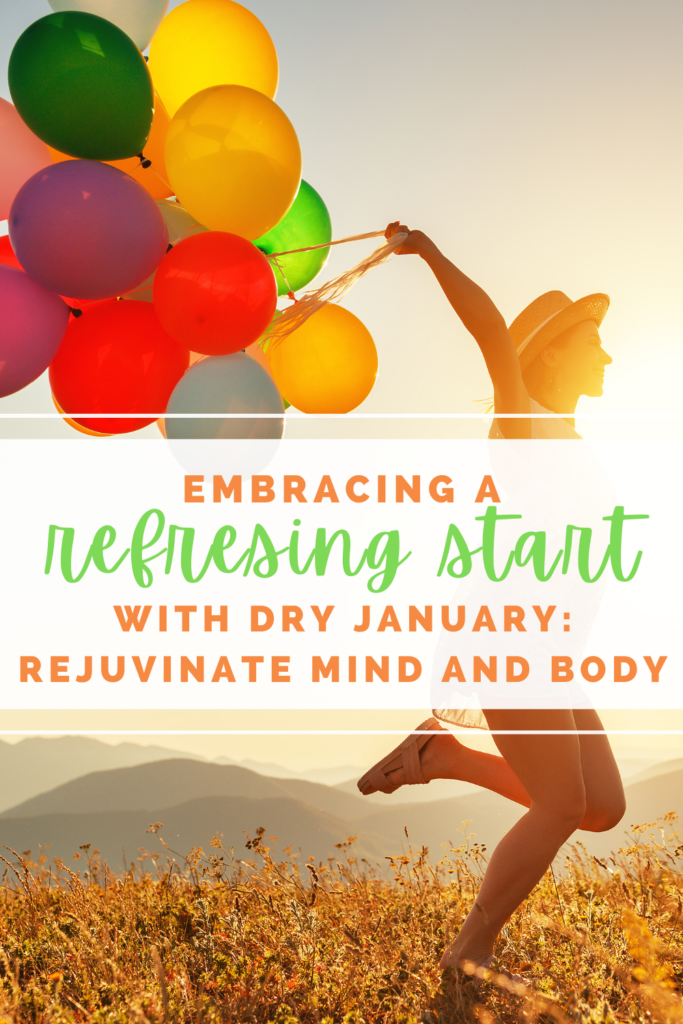lifestyle
Embrace a Refreshing Start With Dry January: Rejuvenate Mind and Body
lifestyle • activities • bettering communities
This post is sponsored by The National Institute on Alcohol Abuse & Alcoholism at NIH (NIAAA). All opinions in this post are my own.
The start of a new year is often synonymous with resolutions and new beginnings. One popular trend gaining momentum worldwide is "Dry January." This practice involves abstaining from alcohol for the entire month, providing a much-needed break after the indulgence of the holiday season. In this blog post, we will explore the benefits of participating in Dry January, not only for our physical well-being but also for our mental, emotional, and social health.

Embracing a wholesome New Year's resolution, many individuals opt for a hiatus from alcohol throughout January, a practice commonly known as "Dry January." This break offers a valuable chance to evaluate your alcohol consumption patterns and their impact on both your physical and mental well-being. Here are some advantages of participating in this challenge:
1. Revitalize Your Physical Well-being
One of the biggest advantages of partaking in Dry January is the positive impact it has on your body. Alcohol can take a toll on our overall health, affecting our sleep patterns, energy levels, and immune system. Eliminating alcohol for a month—or even for a shorter time period like for a weekend—allows our bodies to reset and repair. You may notice improvements in your sleep quality, increased energy levels, and enhanced skin appearance.
2. Boost Mental Clarity and Emotional Well-being
Alcohol, even in moderate amounts, can have profound effects on our mental and emotional well-being. While some claim they experience relaxation or something akin to a social lubricant, excessive or prolonged alcohol consumption can lead to anxiety, depression, irritability, and poor decision-making. By embarking on Dry January, you give your mind the chance to operate at its full potential, improving mental clarity, focus, and emotional stability.
3. Reinvent Social Connections
Dry January offers an opportunity to explore alternative ways of socializing and connecting with others. While alcohol is often intertwined with social activities, embracing sobriety (even for a short period of time) can lead to discovering new hobbies, engaging in meaningful conversations, and connecting on a deeper level with friends and loved ones. You might find yourself enjoying activities like hiking, trying out new restaurants with enticing non-alcoholic beverages, or engaging in board game nights with friends.
4. Financial and Productivity Gains
Participating in Dry January can also result in financial savings. The cost of alcohol, especially when enjoyed outside of the home, can quickly add up. By refraining from purchasing alcoholic beverages, you can save a considerable amount of money. Additionally, without the potential side effects of alcohol, you may experience increased productivity in both your personal and professional life. Waking up refreshed and clear-headed can lead to enhanced focus, creativity, and overall productivity throughout the day.
Dry January is not just a passing trend but rather a powerful act of self-care, offering numerous benefits for your physical, mental, emotional, and social well-being. By giving your body a break from alcohol, you can experience increased vitality, mental clarity, improved relationships, and financial gains. The start of the year presents an ideal time for personal growth and positive change, and Dry January is an excellent way to kickstart your journey towards a healthier and more balanced lifestyle.
If you decide to return to drinking after January is over, stay within the Dietary Guidelines for Americans, 2020–2025, which provide advice on what to eat and drink to meet nutrient needs, promote health, and prevent disease. The guidelines recommend that adults who choose to drink limit alcohol intake to 1 drink or less for women and 2 drinks or less for men—on any single day, not on average. Keep in mind that drinking less is better for your health. Research shows that even small amounts of alcohol can carry health risks, including certain cancers and cardiovascular issues.
Some people should avoid alcohol completely. It’s safest to avoid alcohol altogether if you:
- Take medications that interact with alcohol.
- Have a medical condition that can be made worse by drinking.
- Are under the legal drinking age of 21.
- Plan to drive a vehicle or operate machinery.
- Are recovering from alcohol use disorder or unable to control the amount you drink.
- Are pregnant or might be pregnant.
- Experience facial flushing and dizziness when drinking alcohol.
For more ideas to help you explore your relationship with alcohol and tips for cutting back, visit NIAAA’s Rethinking Drinking website (RethinkingDrinking.niaaa.nih.gov). If you think you have an alcohol problem and need support for cutting back or quitting, visit the NIAAA Alcohol Treatment Navigator (AlcoholTreatment.niaaa.nih.gov).
So, why not take on the challenge? Embrace a refreshing start to the year and unlock the transformative power of Dry January - your mind, body, and soul will thank you!
SOURCES:
Nikki Abad
Latest posts by Nikki Abad (see all)
- Last Chance to Win $100 + Ultimate Party Hosting Package from Avocados From Mexico - February 5, 2024
- Join Jesse Palmer and Avocados From Mexico to Find Out How You Can Take Your Big Game Party Into a Better Bowl - February 5, 2024
- Enter for a Chance to Win $100 + Ultimate Party Hosting Prize Package With Avocados From Mexico - February 1, 2024



